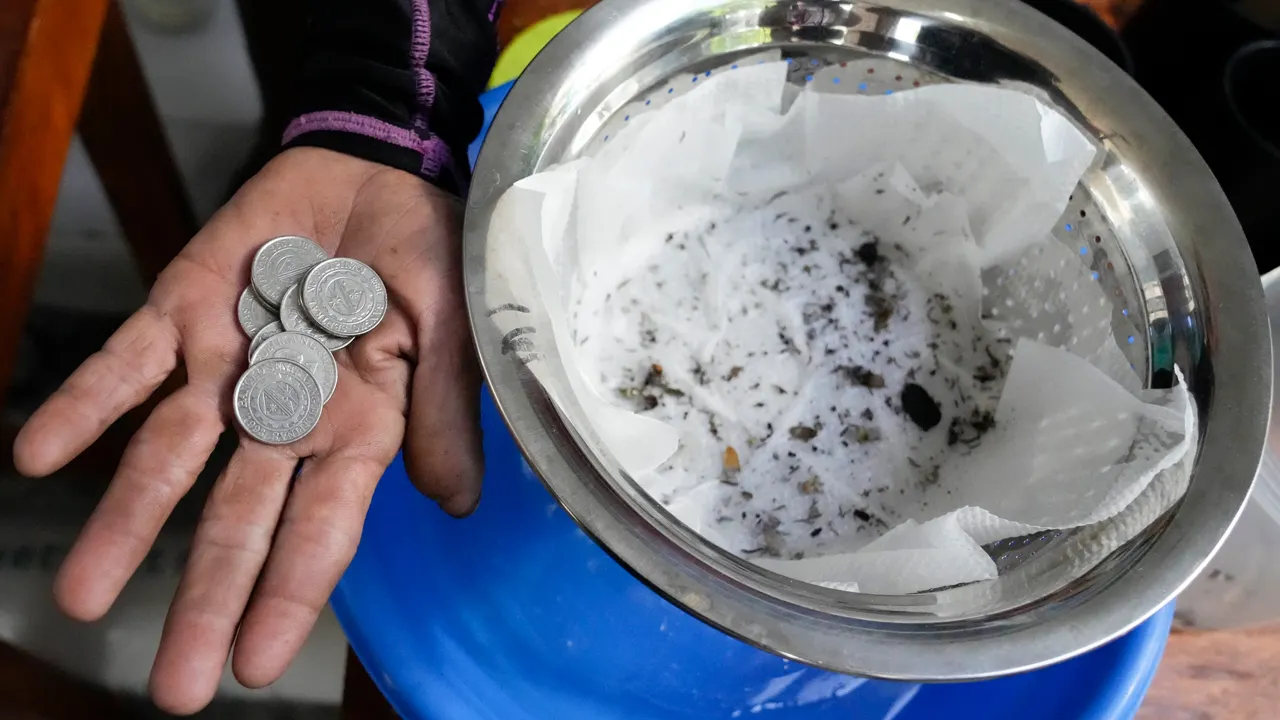Philippine village offers cash for mosquitos amid dengue outbreak

In an effort to combat a dengue outbreak in the Philippines, a village in the densely populated capital region is taking a unique approach by offering a bounty for captured mosquitoes. The Addition Hills village in Mandaluyong City has launched this initiative in response to a significant increase in dengue cases, with at least 28,234 cases recorded this year up to Feb. 1.
The village, home to over 100,000 residents living in crowded neighborhoods and residential condominium towers, has already implemented various measures to address the dengue outbreak, including clean-ups, canal de-clogging, and a hygiene campaign. However, with cases spiking to 42 this year and two young students tragically losing their lives, village leader Carlito Cernal decided to escalate their efforts.
Residents are now being encouraged to capture mosquitoes or mosquito larvae and turn them in for a reward of one Philippines peso for every five mosquitoes. While some critics have expressed concerns about the potential for people to breed mosquitoes for the reward, Cernal has assured that the campaign will be terminated once the dengue cases start to decrease.
As the campaign kicked off, residents quickly began participating in the initiative. One resident, Miguel Labag, a 64-year-old scavenger, received a reward of nine pesos for turning in a jug filled with 45 mosquito larvae. Labag expressed his gratitude, stating that the reward would allow him to buy a cup of coffee.
Dengue is a serious viral infection transmitted by mosquitoes, commonly found in tropical countries. The illness can cause symptoms such as joint pain, nausea, vomiting, and rashes, and in severe cases, it can lead to breathing difficulties, hemorrhaging, and organ failure. While there is no specific treatment for dengue, maintaining fluid levels through medical care is crucial for recovery.
In addition to the bounty program, officials in another village in Quezon City are considering releasing swarms of frogs to eat mosquitoes as a natural method of controlling the insect population. Health Secretary Teodoro Herbosa emphasized the importance of cleaning up mosquito breeding sites and seeking immediate medical attention for anyone suspected of being infected with dengue.
Despite the challenges posed by the dengue outbreak, the Philippines has managed to maintain low mortality rates. Health officials attribute the unexpected surge in dengue cases to climate change, which has led to off-season downpours creating stagnant pools of water ideal for mosquito breeding.
Overall, the efforts of the Addition Hills village and other communities in the Philippines demonstrate a proactive approach to combating the dengue outbreak and protecting the health of their residents. By implementing innovative strategies and raising awareness about prevention measures, these communities are working together to address this public health issue effectively.




